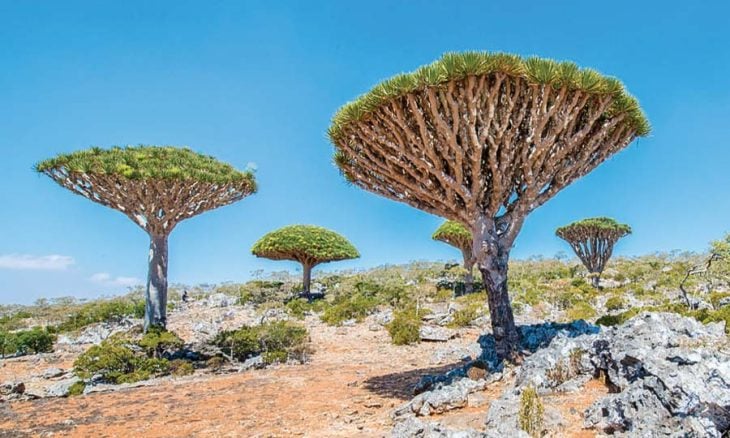Socotra Rejects Self-Governance Bid

Yemen Monitor/Exclusive
Socotra Archipelago witnessed widespread public backlash in recent hours following the announcement by the so-called “National Council for original residents of Socotra,” which claimed to have established self-governance for the island.
The council is led by Ali bin Issa bin Afrar, a commander in the STC militia who also holds Emirati citizenship. Bin Afrar has claimed to have negotiated with the Presidential Leadership Council to declare self-governance, and has called on the international community and the Saudi-Emirati coalition to support this move.
Last week, Bin Afrar called for the annexation of the archipelago as the eighth emirate of the UAE, a call that contradicts his recent declaration of self-governance.
On Saturday evening, tribal elders, social figures, and political leaders held a large meeting where they reaffirmed their commitment to national principles and unity, emphasizing the importance of preserving the social fabric of the island’s people.
In a statement issued following the meeting, the elders said, “No individual or group has the right to decide the fate of a nation and a country on such crucial issues.”
The attendees stressed the need for everyone to unite and strengthen social ties among all the island’s people to preserve sovereignty and territorial unity.
The meeting also highlighted the need to exert all efforts and coordinate with important leaders from the governorate to overcome differences, unify visions, and work for the interests of Socotra and its people.
The elders and notables called for the fulfillment of all the legitimate demands of the governorate’s people.
Former Minister of Fisheries, Fahad Kfawin, stated that Socotra Governorate is in need of a comprehensive national project to emerge from its dire situation and the prevailing political turmoil and acute polarization.
In a post on his Facebook page, Kfawin said, “We all need, more than ever today, to prepare a comprehensive national project to get out of the dire situation and the prevailing political turmoil and acute polarization that Socotra Archipelago is experiencing.”
He added, “We had previously demanded and pressured for Socotra Islands to have an administrative status befitting its environmental, cultural, and strategic geographic location. At that time, the islands were still two districts affiliated with Hadhramaut Governorate. The governorate project was completed by a decision of President Abd Rabbuh Mansour Hadi ten years ago.”
Kfawin said that Socotra still needs a special administrative status that accommodates its uniqueness, environment, and culture, and that there is no disagreement on the importance of working and cooperating to achieve this at the appropriate time and with a mechanism and status that all the people of the governorate, without exception, choose.
He continued, “But this will certainly not be achieved through social division and the multiplicity of banners, visions, and conflicting projects, and raising distracting slogans from the pressing basic needs that the people of the archipelago need, related to basic services.”
He said, “Let all forces and components know that one component, whether a party, group, or segment, cannot decide the fate of Socotra without the rest of its people with their various components and segments, and any attempt in that direction will not make a difference and will not reach the desired result.”
He indicated that no achievement is made in the case of division, and no success is achieved when people are fragmented and different, calling at the same time to stop distributing classifications and sorting and rallying around what you want, and then it will be achieved, without that nothing happens.
Kfawin affirmed that Socotra today needs a firm and serious stance to move it from the miserable living situation, unfortunately, and the noticeable and continuous deterioration in basic services and the isolation that has returned to haunt the archipelago.
He added that it also needs to bring its people together on one word as a starting point to demand their rights and push towards a better reality. It also needs to bring together visions and positions and approach and understand them within a comprehensive project that meets the aspirations of the governorate’s people and preserves its environmental and cultural uniqueness and enables it to benefit from its natural resources and strategic location while preserving national constants and references.




